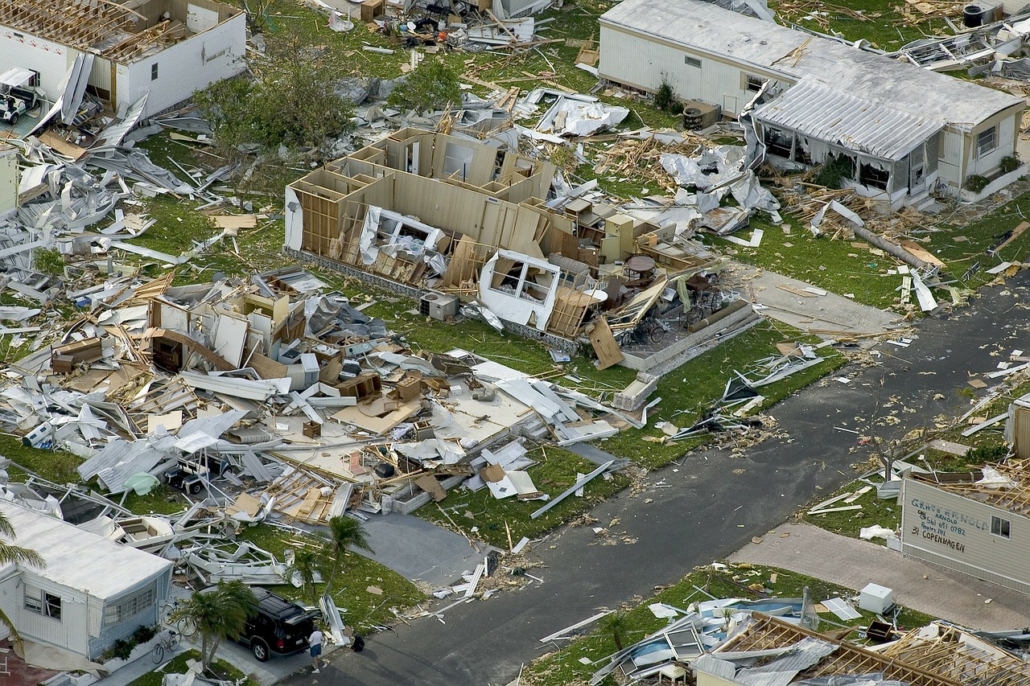How Hurricanes Amplify Poverty in the Bahamas

On September 1, 2019, a massive Category 5 hurricane hit the Bahamas, bringing mass destruction and devastation to the people living there. The storm, named Dorian, took the lives of 70 people and left thousands homeless. A storm of this magnitude impacts all people in its path, yet those hit hardest are the ones living in poverty. During the hurricane season between June and November, hurricanes amplify poverty in the Bahamas by increasing the unemployment rate and exacerbating socioeconomic inequalities. Hurricanes also leave many without access to food, water and shelter.
Unemployment Rates Rise
The Bahamas relies heavily on tourism from resorts, casinos and cruise lines to support its economy. Bahamians living in poverty-stricken conditions depend upon employment from these resorts to support their families. A large storm like Dorian often reduces these resorts and casinos to rubble, leaving thousands unemployed. It is in this way that hurricanes amplify poverty in the Bahamas.
Before the destruction that Hurricane Dorian caused, the unemployment rate stood at 10.9%; however, after the storm, the unemployment rate rose to a staggering 50%. With a fractured economy, an abundance of destroyed homes and limited food and water, survivors of the storm had to leave their homes and families had to seek employment elsewhere.
The Helplessness of Poverty-Stricken Neighborhoods
Of those missing and pronounced dead following Dorian, many were Bahamians living in poverty-stricken neighborhoods. The Mudd, a neighborhood well-known for its high levels of poverty, is just one of many that major hurricanes have leveled. Thousands of Haitian immigrants sought refuge in unstable wooden homes, which were no match for hurricane-force winds. The winds reached 185 mph winds, blowing neighborhoods like it to pieces.
In an interview conducted with Dorval Darlier, the chargé d’affaires of the Haitian Embassy in the Bahamas, Darlier described the aftermath of Hurricane Dorian in The Mudd. He stated that “It looked like a bomb just exploded. It is completely destroyed. Not even a piece of wood stands up in The Mudd. If someone was not evacuated, they have to be dead.” Approximately 3,500 Haitian immigrants live in The Mudd and other poverty-stricken neighborhoods.
The devastation that hurricanes leave increases public health risks, particularly for the poor. Bahamians living in poverty tend to take refuge in the most vulnerable areas. When a storm threatens the island, they are the least able to afford to evacuate. Additionally, they often have no choice but to stay in life-threatening conditions. Bahamian officials must visit these neighborhoods and urge residents to evacuate; however, many refuse to leave because they either have no place to go or are living in the Bahamas illegally.
Hurricanes Expose Inequality
In the past, hurricanes like Dorian have exposed the severity of inequality in the Bahamas. People living in poverty-stricken conditions, primarily Haitian immigrants, end up without homes. Bahamian Prime Minister Hubert Minnis vowed not to rebuild immigrant neighborhoods like The Mudd: he mandated that those without homes after a storm are to experience deportation.
Shella Monestime, a Haitian evacuee and resident of one of these neighborhoods, spoke out following the aftermath of Hurricane Dorian and the Prime Minister’s response. She stated, “We just lost everything. We have no clothes, no home, no money. We have to start all over again. People died, and all they are talking about is people getting deported.”
Relief workers in the country have emphasized the drastic nature of this social inequality. A lack of legal papers and uncertain statuses prevent immigrants from receiving assistance after a hurricane. Fear of arrest and deportation has forced the Haitian community into hiding. The Bahamian government has instructed relief workers not to provide assistance to Haitians without proper documentation.As a result, they often end up homeless and helpless after massive storms ravage the area.
Hurricane Aid Provides Hope
The American Red Cross is just one organization that helps rebuild and aid people who experienced an impact from hurricanes. In response to Hurricane Dorian, the American Red Cross provided food, shelter, clean water and emergency supplies to thousands of families that the storm displaced. As of June 30, 2020, the Red Cross had distributed more than $11 million in cash to more than 3,000 Bahamian families. This funding has helped families recover financially and overcome many challenges that Dorian brought on.
In partnerships with Mercy Corps, World Central Kitchen and CORE, the American Red Cross is able to continue providing thousands of gallons of clean drinking water, cash grants to business owners, fresh meals, rent payment assistance and physical aid in rebuilding homes. More than 50 disaster respondents have reached the Bahamas. Each of them has specializations in varying categories including IT/Telecommunications, relief distributions, cash-as-aid, information management, communications, shelter and finance.
The 2020 Atlantic hurricane season has already been extremely active with 11 storms as of August 6, 2020. Additionally, predictions have determined that there could be 10 more storms by the end of the year. Although hurricanes amplify poverty in the Bahamas, aid from organizations like the American Red Cross provides hope to those affected. Despite past destruction, the island continually recovers and proves its resilience as a country.
– Jacey Reece
Photo: Pixabay
